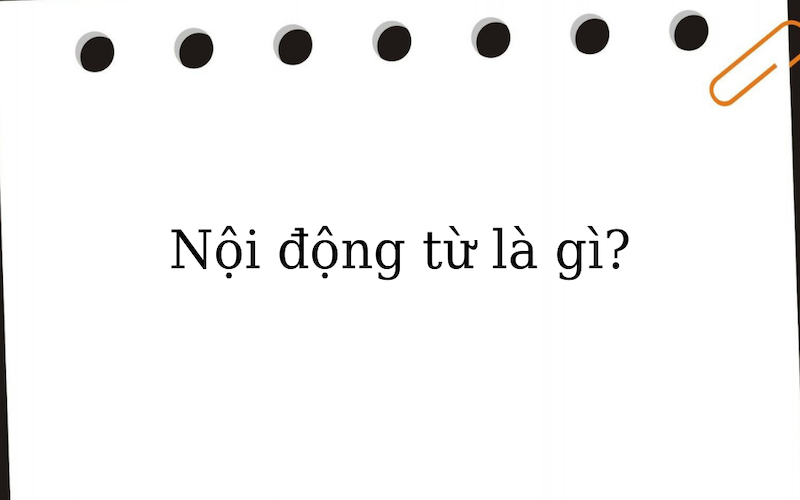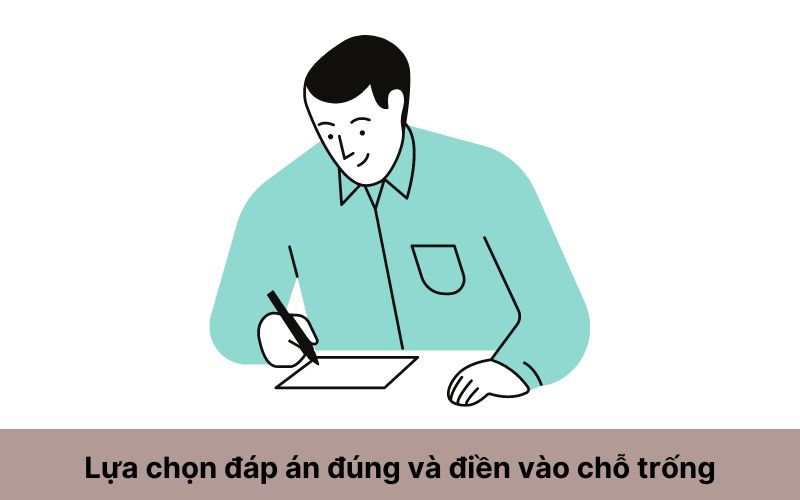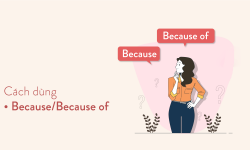Động từ là một trong những mình chủ điểm ngữ pháp cơ bản nhưng vô cùng quan trọng trong chương trình học lớp 4. Chủ điểm này xuất hiện rất nhiều trong bài thi. Chính vì vậy, bạn cần phải làm các bài tập về động từ lớp 4 để có thể củng cố kiến thức.
Tổng hợp kiến thức trọng tâm về động từ lớp 4
Động từ là gì?
Động từ tiếng Anh là một trong những thành phần chính của một câu hoặc một câu hỏi.

Trên thực tế, chúng ta không thể thành lập một câu mà thiếu đi một động từ trong câu. Động từ là các từ dùng để biểu thị cho một hành động, một sự xuất hiện hoặc một trạng thái nào đó.
Công thức
Bên dưới là công thức động từ tiếng Anh:
| S + V + O |
Gần như tất cả những câu trong tiếng Anh đều chứa một chủ ngữ (Subject – S) và một động từ (Verb – V). Phía sau động từ có thể có hoặc không có tân ngữ (Object – O) đều được, tuỳ thuộc vào loại động từ dưới đây.
Những hình thức của động từ trong tiếng Anh
Động từ có rất nhiều hình thức khác nhau. Vậy, có những hình thức của động từ trong tiếng Anh nào?
Intransitive verb (Nội động từ)
Nội động từ được sử dụng nhằm diễn tả hành động dừng lại với người nói hoặc người thực hiện nó. Nội động từ không có chứa tân ngữ trực tiếp đi kèm theo. Nếu có tân ngữ thì phải có giới từ đi kèm phía trước, tân ngữ được gọi là tân ngữ của giới từ (prepositional object), KHÔNG phải là tân ngữ trực tiếp.
Ví dụ: Children are playing in the garden. (Những đứa trẻ đang chơi trong vườn)

Transitive verbs (Ngoại động từ)
Ngoại động từ dùng để diễn tả hành động tác động trực tiếp lên một người khác hoặc một sự vật và được theo sau bởi một tân ngữ.
Ngoại động từ luôn luôn cần một danh từ hoặc một đại từ theo sau để làm nghĩa của câu trở nên đầy đủ.
Ví dụ: I ate an apple. (Tôi đã ăn một quả táo)
Trong câu trên, chúng ta KHÔNG thể nói “I ate” rồi ngưng lại bởi vì câu sẽ tối nghĩa. Danh từ đi theo phía sau ngoại động từ được xem là tân ngữ trực tiếp (“an apple” là tân ngữ trực tiếp của “ate”).
Những động từ vừa là ngoại động từ, vừa là nội động từ
Có một số động từ tiếng Anh vừa được xem là nội động từ, vừa được xem là ngoại động từ đó là: learn, study, write, sing, leave…
Vị trí động từ tiếng Anh
Động từ thường đứng phía sau chủ ngữ
Ví dụ: She worked hard. (Mẹ tôi làm việc vất vả.)
Động từ thường đứng phía sau trạng từ chỉ tần suất (Adverb of Frequency) nếu là động từ thường.
Ví dụ: He always gets up early
Những trạng từ chỉ tần suất thường gặp trong tiếng Anh:
- Always: luôn luôn
- Usually: thường thường
- Often : thường
- Sometimes: Đôi khi
- Seldom: Hiếm khi
- Never: Không bao giờ
Động từ “Tobe” sẽ đứng phía trước trạng từ chỉ tần suất.
Ví dụ: It’s usually hot in summer. (Mùa hè trời thường nóng.)
Cách chia động từ tiếng Anh
Cách thêm đuôi V-ed
Những cách thức thêm ED bên dưới sẽ được sử dụng nhằm thành lập thì Quá khứ đơn (Simple Past) và Quá khứ phân từ (Past Participle):

- Thông thường: Thêm ED vào sau động từ nguyên mẫu.
Ví dụ: to talk –> She talked about her family last night.
- Động từ tận cùng bằng chữ E –> chỉ thêm D.
Ví dụ: to live –> He lived in Hanoi for 2 years.
- Động từ tận cùng bằng một phụ âm + Y –> Đổi Y thành IED.
Ví dụ: to study –> They studied in the library last weekends.
- Động từ có một âm tiết tận cùng bằng 1 nguyên âm + 1 phụ âm và động từ được dùng nhấn mạnh (stressed) ở âm tiết cuối –> Gấp đôi phụ âm cuối trước khi thêm ED.
Ví dụ: to stop –> stopped
- Một số động từ 2 âm tiết, tận cùng bằng âm L, được nhấn mạnh (stressed) ở âm tiết thứ 1 cũng gấp đôi phụ âm cuối rồi mới thêm ED.
Ví dụ:
- to travel –> travelled
- to kidnap –> kidnapped
- to worship –> worshipped
Cách phát âm V-ed
Có đến 3 cách để phát âm từ có -ed tận cùng:
- /id/: sau những âm /t/ và /d/
- to want –> wanted
- to decide –> decided
- /t/: sau những phụ âm câm (voiceless consonant sounds)
- to ask –> asked
- to finish –> finished
- /d/: sau những nguyên âm (vowel sounds) và phụ âm tỏ (voiced consonant sounds)
- to answer –> answered
- to open –> opened
Cách thêm -ing sau động từ
V-ing được hình thành nhằm tạo nên hiện tại phân từ (present participle). Trong những thì tiếp diễn (Continuous Tenses) và để tạo thành một động danh từ (Gerund).

Có 6 trường hợp thêm ING:
- Thêm -ING và cuối động từ nguyên mẫu.
- to walk –> walking
- to do –> doing
- Động từ tận cùng bằng E –> bỏ E phía trước khi thêm -ING
- to live –> living
- to love –> loving
- Động từ tận cùng bằng -IE –> đổi thành -Y trước khi muốn thêm -ING.
- to die –> dying
- to lie –> lying
- Động từ một âm tiết tận cùng bằng 1 nguyên âm + 1 phụ âm và động từ được nhấn mạnh (stressed) ở âm tiết cuối –> Tiến hành gấp đôi phụ âm cuối trước khi thêm -ING.
- to run –> running
- to cut –> cutting
- Một số động từ 2 âm tiết, tận cùng bằng âm L, được nhấn mạnh (stressed) ở âm tiết thứ 1 cũng gấp đôi phụ âm cuối trước khi thêm -ING.
- to travel –> travelling
- to worship → to worshipping
- Một số động từ có những thêm -ING đặc biệt nhằm tránh nhầm lẫn:
- to dye (nhuộm) –> dyeing khác với to die (chết) –> dying
- to singe (cháy xém) –> singeing khác với to sing (hát) –> singing
Xem thêm:
Phần bài tập về động từ lớp 4
Khi đã nắm được lý thuyết về động từ tiếng Anh lớp 4. Bạn hãy cùng làm thêm các bài tập về động từ lớp 4 với đa dạng dạng bên dưới để củng cố lại bài đã học nhé.
Phần bài tập về động từ
Bài tập 1: Lựa chọn đáp án đúng nhất để hoàn thành những câu sau
1. They (build) ______________ a hotel in the city center last year.
| A. build | B. built | C. building | D. were built |
2. Look! The bus (come) ______________.
| A. comes | B. coming | C. is coming | D. come |
3. My parents are saving money because they (buy) ______________ a new house next year.
| A. buy | B. are buy | C. buying | D. are going to buy |
4. We’ll go out when the rain (stop) ______________.
| A. stops | B. stopped | C. is stopped | D. stopping |
5. Mr. An (be)______________ a doctor. He (work)______________ in a hospital.
| A. is – worked | B. was – worked | C. is – works | D. is – work |
6. We (visit) ______________ our grandparents last week.
| A. are visiting | B. visited | C. visiting | D. visit |
7. You should (go) ______________ to bed early.
| A. go | B. to go | C. went | D. going |
8. ______________you (drive) ______________ a car?
| A. Do – can drive | B. Can – drive | C. Did – can drive | D. Can – do drive |
9. My mother (not like) ______________ cats.
| A. isn’t like | B. don’t like | C. doesn’t like | D. isn’t liking |
10. ______________she (prepare) ______________ her trip now?
| A. Does – prepares | B. Is – prepare | C. Is – preparing | D. Does – prepare |
Bài tập 2: Tìm và sửa lỗi sai ở những câu có lỗi sai và nếu thấy câu nào đúng, hãy đánh dấu tick ().
- My father used to giving me some good advice whenever I had a problem.
- The sellers doesn’t want to sell things at a lower price.
- If you don’t arrive soon, you did not have a seat in the conference.
- There is differences and similarities between Vietnamese and American culture.
- Let’s wait until the rain will stop.
- George hasn’t completed the assignment yet, and Maria doesn’t, either.
- There are many frequently mentioned reasons why one out of four arrests involve a juvenile.
- Even though they are among the smallest carnivores, weasels will attacked animals that are twice their size.
- Because of refraction, the water in a tank never looks as deeply as it actually is.
- Today was such beautiful day that I couldn’t bring myself to complete all my chores.
Bài tập 3: Chia động từ ở thì phù hợp để có thể hoàn thành 1 bài IELTS Writing Task 2 hoàn chỉnh
Caring for children is probably the most important job in any society. Because of this, all mothers and fathers should be required to take a course that prepares them to be good parents. To what extent do you agree or disagree with this view?
It (1-be)_______ true that parents shoulder a huge responsibility and that raising children is by no means an easy task. However, I completely disagree with the idea that we should therefore (2-force)___________all mothers and fathers to attend parenting courses.

In my opinion, the idea that all future parents should take a parenthood preparation course is completely impractical. Many prospective parents (3-have)__________jobs and busy schedules, and they may not be willing or able to attend regular parenting classes. This (4-raise)__________ the question of whether those who missed the classes, or perhaps (5-refuse)__________ to attend, would be punished.
I believe that it would be wrong to do this, and it would therefore be impossible to enforce the idea of compulsory training for parents. Besides, even if parents could be forced to attend, I doubt that people would agree on what good parenting entails, and so it would (6-be)_______difficult to create a parenting course to suit everyone.
As well as being impractical, I would argue that training courses for parents (7-be)________ unnecessary. Mothers and fathers (8-be)________ raising children without any formal help or official interference for thousands of years. Parenting skills are learnt from family members, friends, neighbors and the surrounding culture.
Perhaps more importantly, adults (9-learn)_________ to be good parents by instinct, by trial and error, and by getting to know their own children; for example, a good parent will try different strategies when faced with a badly-behaved child, and will gradually develop an understanding of what works to correct the behavior. None of this (10-require)___________ the intervention of a taught course.
In conclusion, while compulsory parenting lessons might seem like a good idea, I believe that such a scheme would be unworkable and largely pointless.
Xem thêm:
Bài tập 4: Cho dạng đúng của những từ trong ngoặc để tạo thành 1 bài IELTS Writing Task 1 hoàn chỉnh

The line graph (1-compare)__________the average price of a barrel of oil with the food price index over a period of 11 years.
It is clear that average global prices of both oil and food rose considerably between 2000 and 2011. Furthermore, the trends for both commodities (2-be)__________very similar, and so a strong correlation (93.6%) is suggested.
In the year 2000, the average global oil price (3-be)__________close to $25 per barrel, and the food price index stood at just under 90 points. Over the following four years both prices remained relatively stable, before rising steadily between 2004 and 2007. By 2007, the average oil price had more than doubled, to nearly $60 per barrel, and food prices (4-rise)__________by around 50 points.
A dramatic increase in both commodity prices was seen from 2007 to 2008, with oil prices reaching a peak of approximately $130 per barrel and the food price index rising to 220 points. However, by the beginning of 2009 the price of oil had dropped by roughly $90, and the food price index was down by about 80 points. Finally, in 2011, the average oil price (5-rise)_ once again, to nearly $100 per barrel, while the food price index reached its peak, at almost 240 points.
Bài tập 5: Lựa chọn đáp án đúng nhất rồi điền vào mỗi câu sau đây
1. Hue will have temperatures ………………… 230C and 270C.
| A. in | B. between | C. at | D. with |
2. I am preparing for the picnic ……………… my friends tomorrow.
| A. with | B. to | C. in | D. for |
3. Her clothes look very modern and…………
| A. fashion | B. fashioned | C. fashioning | D. fashionable |
4. Many designers took …………. from Vietnam’s ethnic minorities.
| A. inspire | B. inspiring | C. inspired | D. inspiration |
5. Getting to the village is a very ………………. journey.
| A. interest | B. interests | C. interested | D. interesting |
6. My village lies near the ……….. of the mountain and by the river.
| A. foot | B. feet | C. legs | D. leg |
7. What a ………………….. T- shirt!
| A. color | B. colorful | C. colored | D. coloring |
8. She said to me that she ………… that car the following day.
| A. sells | B. sold | C. would sell | D. would sold |
9. That is the book ……………….. he bought last night.
| A. that is | B. which | C. who | D. whom |
10. Why don’t you try praising your children occasionally instead of…………them all the time?
| A. shouting at | B. crying over | C. putting off | D. rushing into |
Xem thêm:
Bài tập 6: Lựa chọn một đáp án đúng rồi điền vào chỗ trống ở đoạn văn sau
Quite apart from the economic similarity between present-day automation and the mechanization, which has been proceeding for centuries, it must also be stressed that even in the United States, automation is by no means the only factor (1) ______ people from existing jobs. The increasing number of unneeded workers in (2) ______ years has been the result of much more simple and old-fashioned influences: farm laborers have been (3) ______ out of work by bigger tractors, miners by the cheapness of oil, and railway-men by better roads.
It is quite wrong, therefore, to think of automation as some new monster whose arrival (4) ______ the existence of employment in the same way that the arrival of myxomatosis threatened the existence of the rabbit. Automation is one (5) ______ of technological changes (changes in tastes, changes in social patterns, changes in organization) which (6) ______ in certain jobs disappearing and certain skills ceasing to be required. And even in America, which has a level of technology and output per (7) ______ much in advance of Britain’s, there is no (8) ______ that the (9) ______ of change is actually speeding up.

Nevertheless changes in the amount of labor needed to produce a certain output are proceeding fairly rapidly in America – and in (10) ______ countries – and may proceed more rapidly in future. Indeed it is one of the main objects of economic policy.
Question 1. A. riding B. displacing C. passing D. dismissing
Question 2. A. recent B. later C. passed D. elapsed
Question 3. A. put B. fit C. set D. dismissed
Question 4. A. shadows B. evades C. intimidates D. threatens
Question 5. A. face B. point C. aspect D. angle
Question 6. A. result B. reside C. end D. prospect
Question 7. A. human B. head C. unit D. piece
Question 8. A. signal B. evidence C. demonstration D. incidence
Question 9. A. step B. rush C. pace D. leap
Question 10. A. another B. others C. other D. each
Bài tập 7: Chọn đáp án đúng nhất
1. Al’s doctor insists______ for a few days.
a. that he is resting b. his resting c. him to rest d. that he rest
2. I don’t like iced tea, and ______.
a. she doesn’t too b. either doesn’t she c. neither does she d. she doesn’t neither
3. We wish that you_______ such a lot of work, because we know that you would have enjoyed the party.
a. hadn’t had b. hadn’t c. didn’t have had d. hadn’t have
4. Since your roommate is visiting her family this weekend, _______ you like to have dinner with us tonight.
a. will b. won’t c. do d. wouldn’t
5. Please______ photocopies of documents.
a. not to submit b. do not submit c. no submit d. not submit
6. I __________ bacon and eggs every morning.
a. am used to eat b. used to eating c. am used to eating d. use to eat
7. The team really looks good tonight because the coach had them________ every night this week.
a. practice b. practiced c. to practice d. the practice
8. Would you mind _________ please?
a. to answer the telephone b. answering the telephone
c. answer the telephone d. to the telephone answering
9. You ________ your seats today if you want to go to the game.
a. had better to reserve b. had to better reserve
c. had better reserve d. had to reserve better
10. If it___________ so late we could have coffee.
a. wasn’t b. isn’t c. weren’t d. not be
11. Your sister used to visit you quite often________?
a. didn’t she b. doesn’t she c. wouldn’t she d. hadn’t she
12. If Bod _______ with us, he would have had a good time.
a. would come b. would have come c. had come d. came
13. Frankly, I’d rather you________ anything about if for the time being.
a. do b. didn’t do c. don’t d. didn’t
14. Since they aren’t answering their telephone, they_________
a. must have left b. need have left c. should have left d. can have left
15. We were hurrying because we thought that the bell_________
a. had already rang b. has already rang
c. had already rung d. have already ringing
Xem thêm:
Bài tập 8: Chọn hình thức chính xác của động từ trong dấu ngoặc đơn trong các câu sau
- The teacher decided (accepting/to accept) the paper.
- They appreciate (to have/having) this information.
- His father doesn’t approve of his (going/ to go) to Europe.
- We found it very difficult (reaching/ to reach) a decision.
- Donna is interested in (to open/opening) a bar.
- George has no intention of (to leave/leaving) the city now.
- We are eager (to return/returning) to school in the fall.
- We would be better off (to buy/ buying) this car.
- She refused (to accept/ accepting) the gift.
- Mary regrets (to be/being) the one to have to tell him.
Bài tập 9: Hoàn thành mỗi câu sau với các động từ: apply, be, be, listen, make, see, try, use, wash, work, write. (chia động từ theo đúng dạng)
- Could you please stop………………..so much noise?
- I enjoy …………………to music.
- I considered …………………..for the job but in the end I decided against it.
- Have you finished ………………………your hair yet?
- If you walk into the road without looking, you risk………knocked down.
- Jim is 65 but he isn’t going to retire yet. He wants to carry on………………
- I don’t mind you……………the phone as long as you pays for all your calls.
- Hello! Fancy …………..you here! What a surprise!
- I’ve put off ………………..the letter so many times. I really must do it today.
- What a stupid thing to do! Can you imagine any body ……………..so stupid?
- Sarah gave up …………………..to find a job in this company and decided to go abroad.
Phần bài tập về động từ lớp 4
Sau khi làm bài, bạn hãy cùng dò xem mình đã làm đúng bao nhiêu câu nhé. Nếu làm sai, bạn cũng đừng quá lo lắng, chỉ cần xem lại lý thuyết và làm lại bài một lần nữa nhé.
Đáp án bài tập 1
| 1. B | 2. C | 3. D | 4. A | 5. C | 6. B | 7. A | 8. B | 9. C | 10. C |
Đáp án bài tập 2
| 1. giving => give | 2. doesn’t => don’t | 3. did not => will not | 4. is => are | 5. will stop => stops |
| 6. doesn’t => hasn’t | 7. involve => involves | 8. attacked => attack | 9. deeply => deep | 10. such beautiful day => such a beautiful day |
Đáp án bài tập 3
| 1. is | 2. force | 3. have | 4. raises | 5. refused |
| 6. be | 7. are | 8. have been | 9. learn | 10. requires |
Đáp án bài tập 4
| 1. compares | 2. were | 3. was | 4. had risen | 5. rose |
Đáp án bài tập 5
| 1. B | 2. A | 3. D | 4. D | 5. D | 6. A | 7. B | 8. C | 9. B | 10. A |
Đáp án bài tập 6
| 1. B | 2. A | 3. A | 4. D | 5. C | 6. A | 7. B | 8. B | 9. C | 10. C |
Đáp án bài tập 7
| 1. D | 2. C | 3. A | 4. D | 5. B | 6. C | 7. A | 8. B |
| 9. C | 10. C | 11. A | 12. C | 13. B | 14. A | 15. C |
Đáp án bài 13
| 1. to accept | 2. having | 3. going | 4. to search | 5. opening |
| 6. leaving | 7. returning | 8. buying | 9. to accept | 10. being |
Đáp án bài tập 14
| 1. making | 2. listening | 3. to apply | 4. washing | 5. being | 6. working |
| 7. using | 8. to see | 9. writing | 10. being | 11. trying |
Trên đây, Tiếng Anh Cấp Tốc đã tổng hợp đến bạn lý thuyết và bài tập về động từ lớp 4. Chủ điểm ngữ pháp này vô cùng quan trọng, xuất hiện nhiều trong bài thi. Vì vậy, bạn cần nắm vững kiến thức để không mất điểm oan.
Ngoài ra, bạn cũng có học thêm những kiến thức mới tại chuyên mục Ngữ Pháp nữa nhé.








Bình luận